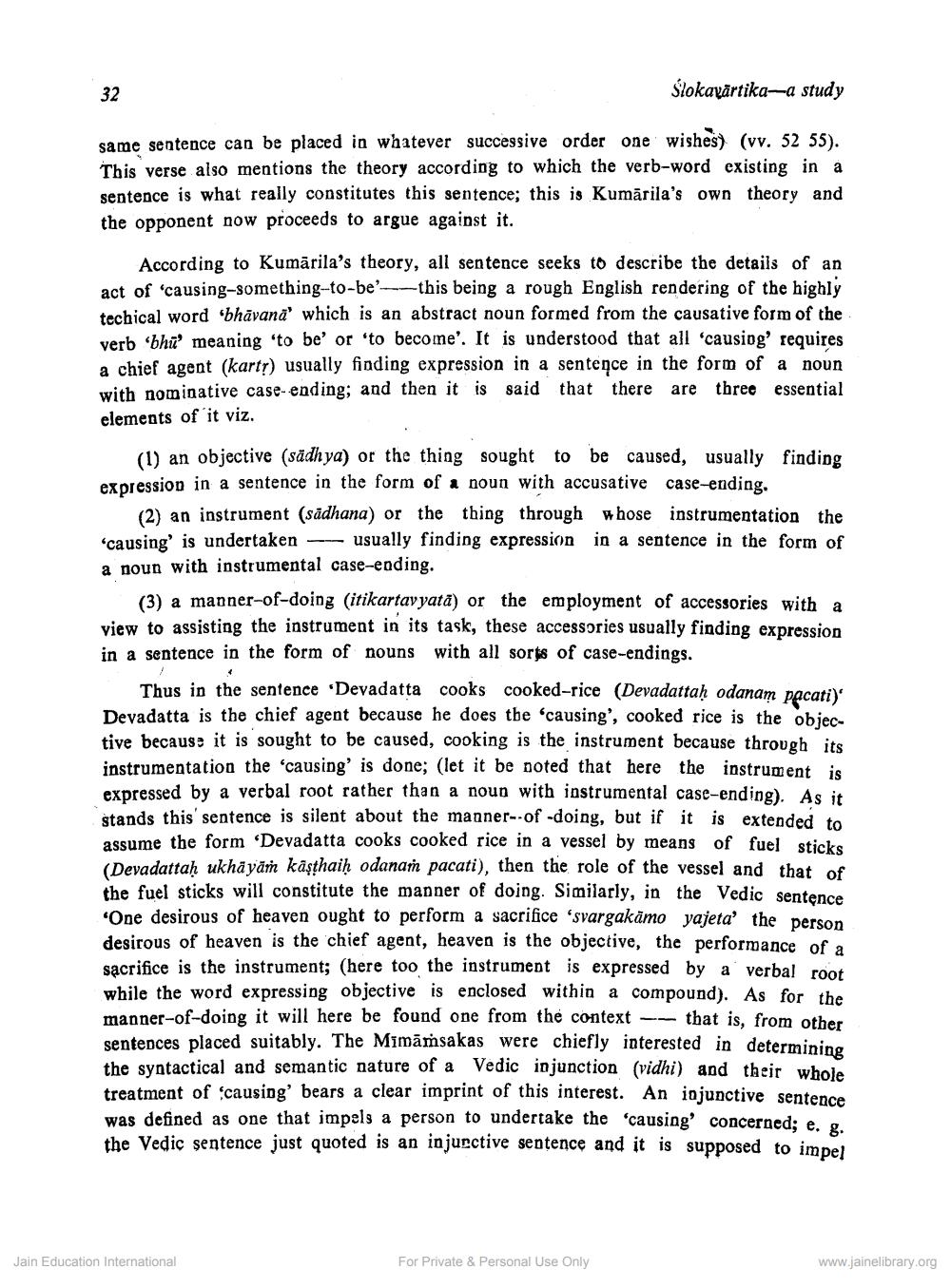________________
Slokayartika-a study
same sentence can be placed in whatever successive order one wishes) (vv. 52 55). This verse also mentions the theory according to which the verb-word existing in at sentence is what really constitutes this sentence; this is Kumārila's own theory and the opponent now proceeds to argue against it.
32
According to Kumārila's theory, all sentence seeks to describe the details of an act of 'causing-something-to-be--this being a rough English rendering of the highly techical word 'bhavana' which is an abstract noun formed from the causative form of the verb 'bha meaning 'to be' or 'to become'. It is understood that all 'causing' requires a chief agent (karty) usually finding expression in a sentence in the form of a noun. with nominative case-ending; and then it is said that there are three essential elements of it viz.
(1) an objective (sadhya) or the thing sought to be caused, usually finding expression in a sentence in the form of a noun with accusative case-ending.
(2) an instrument (sadhana) or the thing through whose instrumentation the 'causing' is undertaken usually finding expression in a sentence in the form of a noun with instrumental case-ending.
(3) a manner-of-doing (itikartavyata) or the employment of accessories with a view to assisting the instrument in its task, these accessories usually finding expression in a sentence in the form of nouns with all sorts of case-endings.
4
Thus in the sentence Devadatta cooks cooked-rice (Devadattaḥ odanam pacati) Devadatta is the chief agent because he does the 'causing', cooked rice is the objec tive because it is sought to be caused, cooking is the instrument because through its instrumentation the 'causing' is done; (let it be noted that here the instrument is expressed by a verbal root rather than a noun with instrumental case-ending). As it stands this' sentence is silent about the manner--of-doing, but if it is extended to assume the form 'Devadatta cooks cooked rice in a vessel by means of fuel sticks (Devadattaḥ ukhāyāṁ kāṣṭhaiḥ odanam pacati), then the role of the vessel and that of the fuel sticks will constitute the manner of doing. Similarly, in the Vedic sentence "One desirous of heaven ought to perform a sacrifice 'svargakāmo yajeta' the person desirous of heaven is the chief agent, heaven is the objective, the performance of a sacrifice is the instrument; (here too the instrument is expressed by a verbal root while the word expressing objective is enclosed within a compound). As for the manner-of-doing it will here be found one from the context that is, from other sentences placed suitably. The Mimamsakas were chiefly interested in determining the syntactical and semantic nature of a Vedic injunction (vidhi) and their whole treatment of causing' bears a clear imprint of this interest. An injunctive sentence was defined as one that impels a person to undertake the 'causing' concerned; e. g. the Vedic sentence just quoted is an injunctive sentence and it is supposed to impel
Jain Education International
For Private & Personal Use Only
www.jainelibrary.org




